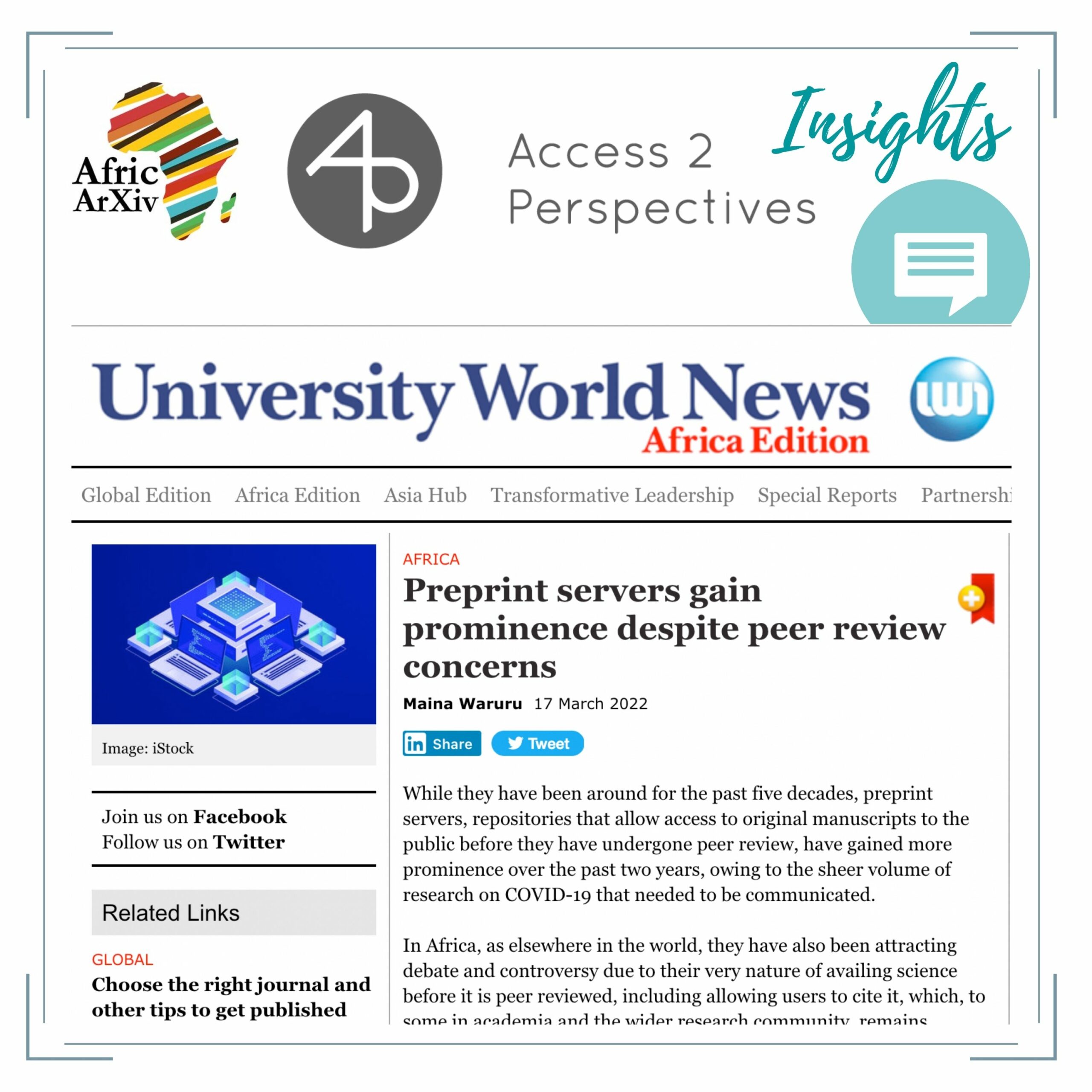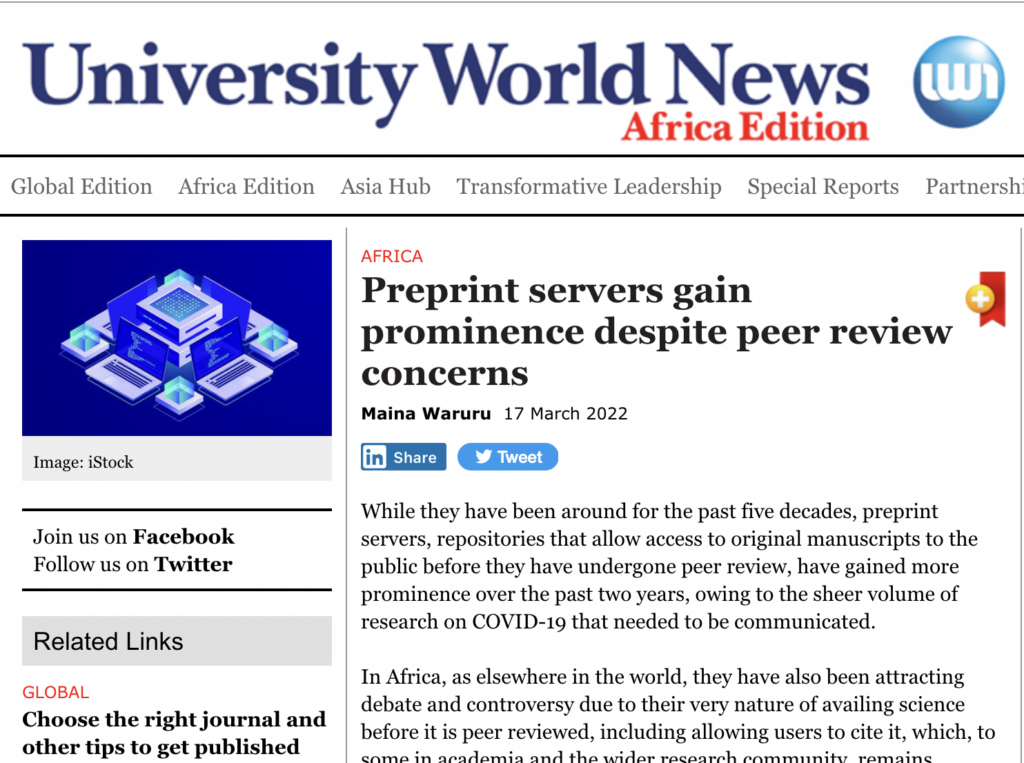Preprint servers gain prominence, a spotlight on AfricArXiv

Talking about preprints and AfricArXiv in particular, we are honored to be featured in University World News along with colleagues and institutional partners Joy Owango (TCC Africa-Training Centre in Communication), Stephanie Dawson (ScienceOpen), Mark Hahnel (Figshare), Catherine Ahearn (Knowledge Futures Group).
Read the whole article at universityworldnews.com/post.php?story=20220316073900917
While they have been around for the past five decades, preprint servers, repositories that allow access to original manuscripts to the public before they have undergone peer review, have gained more prominence over the past two years, owing to the sheer volume of research on COVID-19 that needed to be communicated.
In Africa, as elsewhere in the world, they have also been attracting debate and controversy due to their very nature of availing science before it is peer reviewed, including allowing users to cite it, which, to some in academia and the wider research community, remains unconventional and unacceptable.
Despite that, promoters believe preprints come with many advantages, and could be one of the interventions Africa needs to increase its scientific output or make its research more visible.
One such advantage is that they shorten the period an article needs before it is published, since preprints make works available online as soon as they are submitted.
“Ordinarily, the publishing process, from submission to review and final publication in a journal, may take between three and 12 months and, in some cases, even longer when a paper is rejected,” says Joy Owango, a member of the advisory board of Africa Archives (AfricArXiv), Africa’s first public preprint server. The University of South Africa, or UNISA, also has a preprint server, but it is accessible only to its own researchers. […]

Upholding data sovereignty
[…] Preprints, according to Jo Havemann, a co-founder of AfricArXiv, have the advantage of making data easy to discover from wherever it is searched for, including engines such as Google.
Discoverability of research is one of the challenges that faced African academic publishing, she noted, adding that one of the strengths of preprints was the ability to guard against plagiarism and theft.
“Preprints protect manuscripts and uphold research data and sovereignty through digital objects identifiers to indicate ownership of works,” she said.
They are about acceleration of science communication, upheld quality, published free of charge, while upholding data safety,” she added.
They facilitated research exchange, had a robust system of quality assurance and allowed feedback from the public while challenging traditional norms of academic publishing.
“Publishing in prestigious journals does not necessarily mean that the research work is good,” she declared. […]
Dr. Jo Havemann


